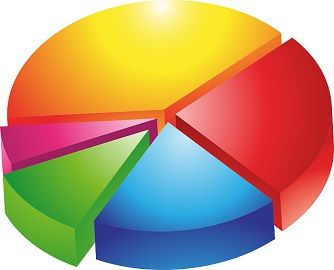 Surveys are considered as the best method to gain insights about the public opinion, concerning someone or something, wherein a number of people are selected from a large group, to ask about the issue or topic of interest. However, when the same is used in a political sense the process of the survey is called ‘polling’ and the study is called ‘polls’.
Surveys are considered as the best method to gain insights about the public opinion, concerning someone or something, wherein a number of people are selected from a large group, to ask about the issue or topic of interest. However, when the same is used in a political sense the process of the survey is called ‘polling’ and the study is called ‘polls’.
The poll is a process in which the opinion of a particular group concerning a particular subject or a person is questioned and their votes are counted to reach a conclusion. It is a form of a survey, wherein people are asked about their views and opinion on a person, issue, technology, etc. through a handful of questions.
Contrary to the above, the survey is the widely used data collection method, which can be performed in both online or offline modes. In a survey, a set of objective type questions are asked to the respondents with an aim of statistical analysis.
Content: Poll Vs Survey
Comparison Chart
| Basis for Comparison | Poll | Survey |
|---|---|---|
| Meaning | A poll is a form of a survey, conducted with the aim of gaining knowledge about public opinion about someone or something. | The survey is a method of collecting data through questionnaire, regarding the topic of interest from a selected group. |
| Results | Declared immediately | Declared after some time |
| Used for | Knowing the trends and generalizing the results. | Gaining insights and making decisions. |
| Information | Collected on a single topic of interest. | Collected on various topics of interest. |
| Sensitive and Personal Information | Not asked | Asked |
| Time consumed | Less | Comparatively more |
| Data provided | Limited | Sufficient |
Definition of Poll
The poll is a survey method, which records public opinion or votes so as to gather general data on the latest trend, flow or pattern of the opinion of the population by asking a series of questions and then generalizing the results. And to do so, people are selected randomly from the large population to extract the answer to specific questions, for the purpose of analysis.
The results of poll help in drawing conclusions regarding the popularity of someone or demand for something among people, as well as the likes and dislikes, favourites and non-favourites, and the latest trends in fashion, and technology. Polls serve as an instant check on the fluctuations in the opinions of the audience.
With the help of poll, the agency or company conducting polls can ask several questions which are either multiple-choice questions or their choice is restricted to one answer only, wherein the participants have to pick the best answer as per them, from the given options, which are pre-defined by the organization conducting the poll.
The final results of the poll are depicted in the form of charts or graphs.
Definition of Survey
A survey is a form of research tool wherein more systematic and advanced questions are asked to the general public. It is used for gathering information and insights from a certain group of people, on a specific topic so as to make deductions about the larger population. Basically, a survey questionnaire contains multiple-choice questions, ratings or ranking questions.
A standardized procedure is followed for this purpose, so that every participant is asked the same question, in the same format, and they are given the same amount of time to submit it.
It encompasses asking questions to the selected group, with the help of a questionnaire which contains a list of the question with four or five answer option and the respondents have to make the most suitable answer according to them. These survey questionnaires are distributed in a printed form to the respondents or sent digitally via emails, SMS, or social networks.
An online or internet survey contains systematically arranged set of questions, which the respondent has to complete and submit. These are in the form of a Web form, and as the user enters his/her answer, it is recorded in the database.
Key Differences Between Poll and Survey
The difference between poll and survey are explained hereunder:
- Poll implies an inquiry, wherein random sample of people are questioned, to express their opinion in the form of votes, concerning a person, subject, issue or anything else. It is a common tool used to know the current trends in the economy. On the contrary, survey, is a research method, wherein a selected group of people are asked questions on different topics and subtopics, to acquire information. It can be conducted via face to face interview, telephonic conversation, mail, etc.
- The results of the polls are announced immediately because there is no need for in-depth analysis and the questions asked are also very few in number. As against, surveys require time to collect responses from all the participants and then to analyse the same by summing up all the responses together, to reach an ultimate conclusion. Hence, survey reports are published after some time.
- Polls are mainly used for knowing and understanding the recent trends in society, to generalize the results. Conversely, a survey is used for learning about the audience and making decisions.
- Basically polls are used to gather information on a single topic, which is generally on a political issue. In contrast, a survey gathers information on multiple topics or subtopics.
- Sensitive and personal information is not asked in polls, but they can be asked in a survey.
- As only a few and basic questions are asked in a poll from the respondents, so it takes only a few seconds to complete the same. On the contrary, in a survey questionnaire, there is a list of questions which are from different fields and subfields so the respondent requires time to think and answer it in full.
- Polls provide a limited amount of data, which gives an overview of the opinion of the people. As against, the survey provides detailed information on a certain topic, which is helpful to make future predictions or decisions.
Conclusion
Polls and surveys are two common tools which are used to gain an in-depth and thorough knowledge of the target audience, concerning their tastes, preferences, trends, likes and dislikes. Further, they are also very useful in formulating public policies so as to deal with social issues, create a proper link between companies/governments and the general public, encourage transparency and so forth.
Nowadays, both polls and surveys can be conducted online which has not just increased the reach, but it has also saved the time and efforts made for the data collection and analysis.






sylvester bulukutu says
this website is very informative